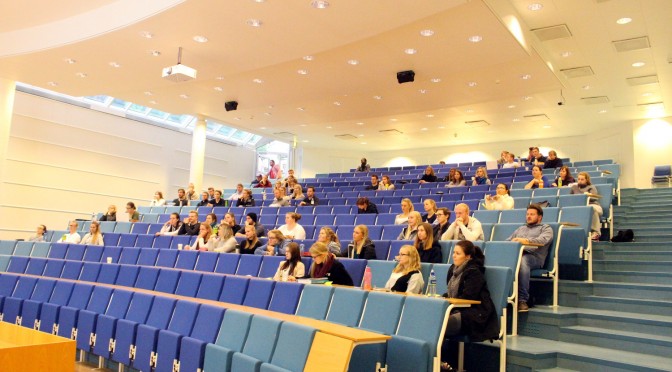It’s time for the hard facts. Final exams are just around the corner and your studies in the coming weeks will play a large role in your exam performance.
BY NANCY LE AND KRYSTOF DIATKA (photo)

If you don’t know where to start, here is the exam revision strategy recommended by HiMolde student advisor Eva-Merete Otterlei Børstad.
What you need to do in the weeks before exams:
- Devise a must-do plan.
- Stick to the plan and focus on your tasks more than your results. Focusing on results will only leave you more confused. Completing all of the tasks which you have previously set will allow you to be more confident, and good results will follow.
-

«Be physically active» is a tip from associate professor Solveig Straume to keep energy levels up during exam periods. Photo: Jan Rangvald Eide Progress with positive self-talk. This may sound a bit strange, but positive self-talk makes you feel better about yourself and the things that are going on in your life. Looking on the bright side will boost your energy to complete your must-do tasks. For instance, you can find motivation by telling yourself that after the exam you will gift yourself a wonderful vacation in Spain that is super relaxing with sunlight and good food.
- Last but not least, postponement will kill you. Avoid saying «no» or «later» to what you must do before exams.
During the examinations period, you should:

- Sleep enough.
- Prioritize the things you have to do. Basically, your time in 24 hours can be divided into 3 equal parts: working, sleeping and other. «Don’t touch the sleeping time» is the first rule during the exam period. Instead, you can cut the time of watching TV or other leisure activities.
- Continue to think positively.
On the day of examination, you should remember to:
- Eat breakfast.
- Read the questions carefully.
- Answer in a structural, organized manner.

